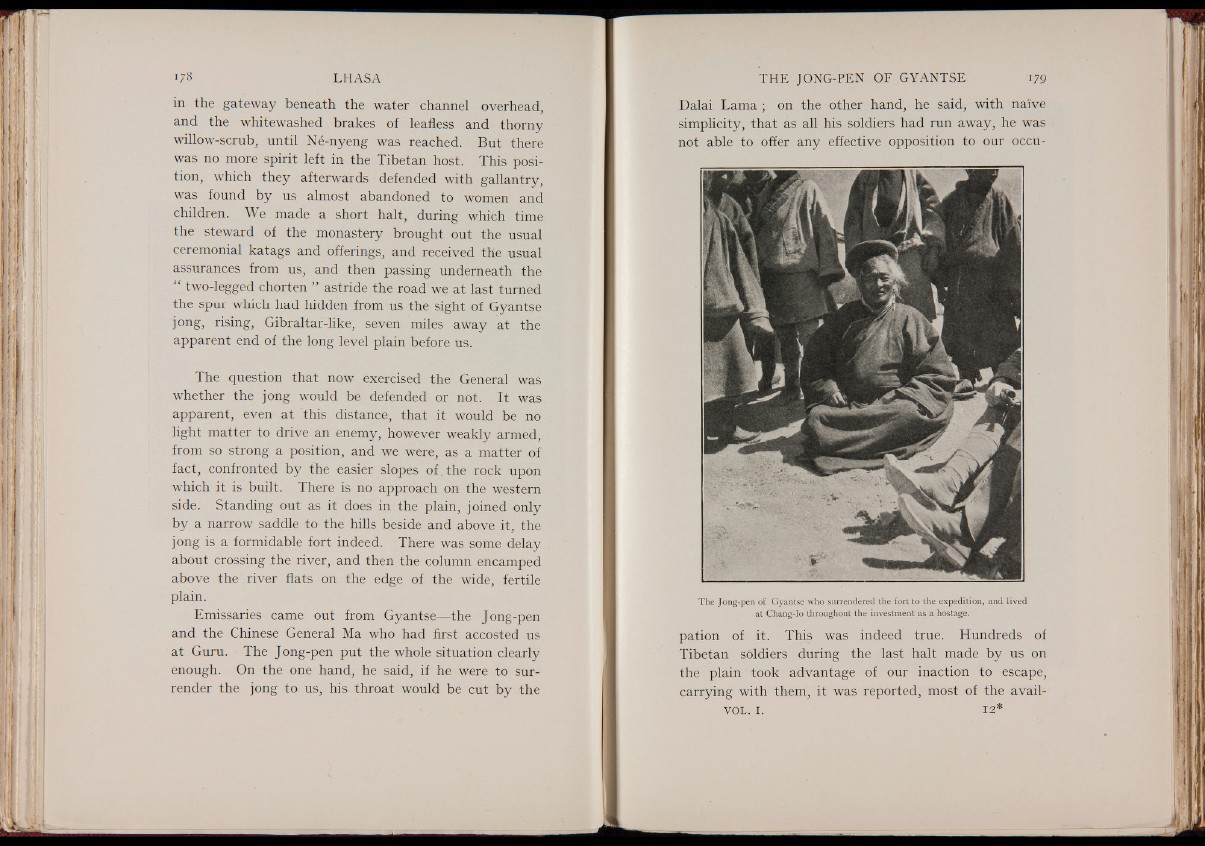
in the gateway beneath the water channel overhead,
and the whitewashed brakes of leafless and thorny
willow-scrub, until Ne-nyeng was reached. But there
was no more spirit left in the Tibetan host. This position,
which they afterwards defended with gallantry,
was found by us almost abandoned to women and
children. We made a short halt, during which time
the steward of the monastery brought out the usual
ceremonial katags and offerings, and received the usual
assurances from us, and then passing underneath the
“ two-legged chorten ” astride the road we at last turned
the spur which had hidden from us the sight of Gyantse
jong, rising, Gibraltar-like, seven miles away at the
apparent end of the long level plain before us.
The question that now exercised the General was
whether the jong would be defended or not. It was
apparent, even at this distance, that it would be no
light matter to drive an enemy, however weakly armed,
from so strong a position, and we were, as a matter of
fact, confronted by the easier slopes of.the rock upon
which it is. built. There is no approach on the western
side. Standing out as it does in the plain, joined only
by a narrow saddle to the hills beside and above it, the
jong is a formidable fort indeed. There was some delay
about crossing the river, and then the column encamped
above the river flats on the edge of the wide, fertile
plain.
Emissaries came out from Gyantse— the Jong-pen
and the Chinese General Ma who had first accosted us
at Guru. The Jong-pen put the whole situation clearly
enough. On the one hand, he said, if he were to surrender
the jong to us, his throat would be cut by the
Dalai Lama ; on the other hand, he said, with naïve
simplicity, that as all his soldiers had run away, he was
not able to offer any effective opposition to our occu-
The Jong-pen of Gyantse who surrendered the fort to the expedition, and lived
at Chang-lo throughout the investment as a hostage.
pation of it. This was indeed true. Hundreds of
Tibetan soldiers during the last halt made by us on
the plain took advantage of our inaction to escape,
carrying with them, it was reported, most of the avail-
v o l . 1. 12 *